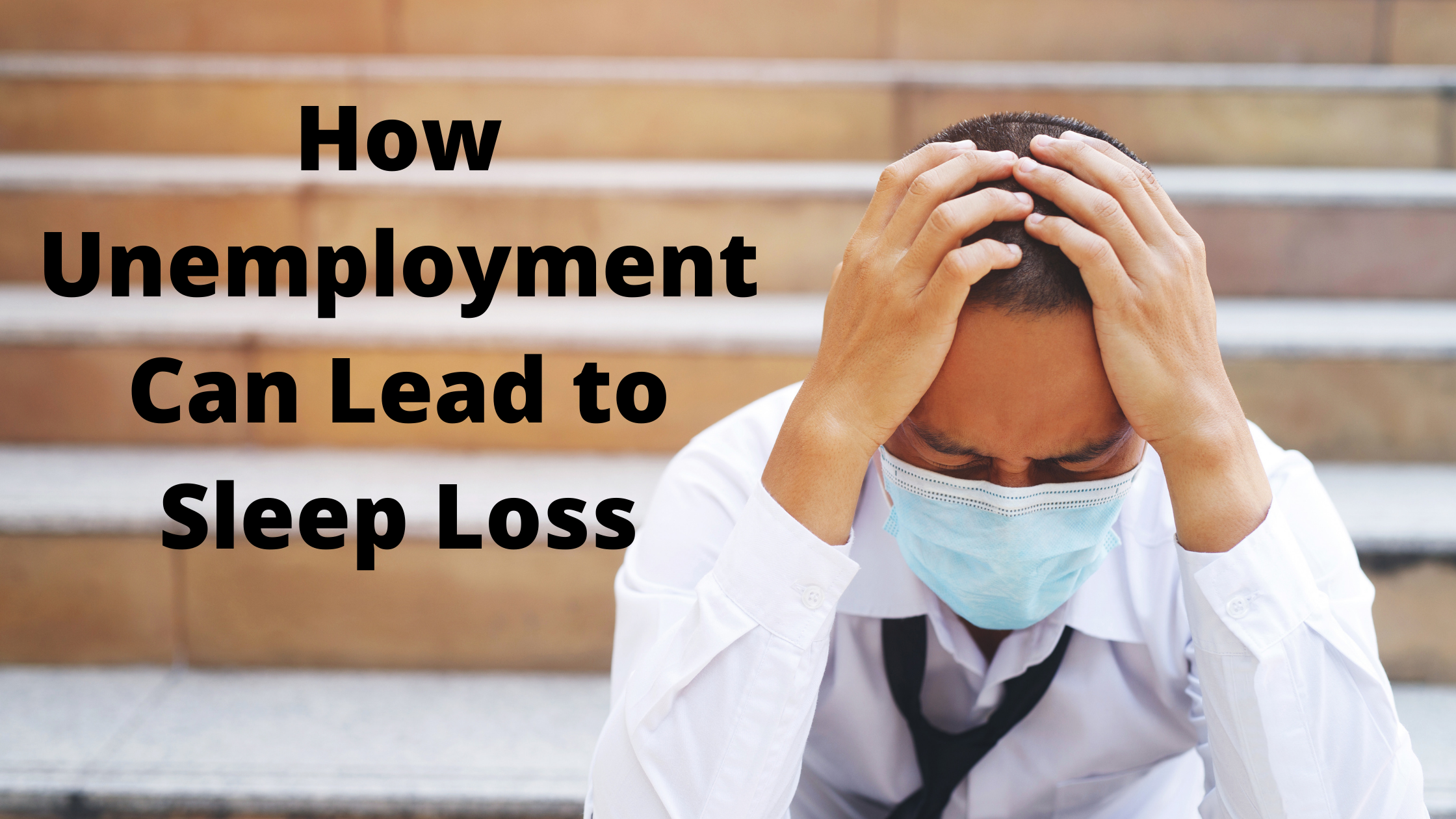
Since the beginning of the pandemic, people have either been forced out of their jobs or left on their own accord. Either way, being without a job has been detrimental to sleep for both US and European workers.
The idea that individuals without jobs have increased sleep trouble can seem paradoxical, considering they seem to have more time to regulate their sleep routines than those with full-time jobs. However, the stress that comes with job loss can lead to either too much or too little sleep. Continue reading to find out how unemployment can impact sleep and what you can do if you are unemployed.
Impacts of Unemployment on Sleep
The US employment rate has rarely changed in the last few months, with many individuals being without a job. This is due either to the financial impacts of the pandemic, where jobs closed and were forced to furlough or lay off their workforce, or because people are re-evaluating the value work has in their lives and quitting.
Either way, a recent study has determined that jobless Americans are not sleeping well. Researchers from Dartmouth College and the University of London found that unemployed adults in the US and Europe sleep worse than the full-time workforce.
They either slept for more than 10+ hours or found it hard to fall and stay asleep. Respondents of their survey without jobs for more than a year were more likely to experience long sleep (10+ hours a night) and short sleep (less than six hours) than employed individuals.
Those without jobs for three or fewer months were more likely to sleep over ten hours a night.
Those without jobs for more than a year were more likely to experience some insomnia-like sleep disturbances, where they had trouble falling asleep and staying asleep.
Sleep issues move in parallel with the unemployment rate, both increasing at the same time.
Mental Health and Sleep
Sleep and mental health are very closely linked with one another. Lack of sleep impacts depression, stress, and anxiety, and all three of those factors lead to a lack of sleep.
The pandemic highlighted the impact of negative mental health as many struggled with the isolation of COVID-19. Being unemployed adds even more stress and anxiety, as the direction of the workforce is so variable that it can be hard to feel confident applying and accepting new jobs.
Omicron and other variants pose a continuous risk, and no one is sure when things will go back to "normal". All of these mixed feelings surrounding jobs can negatively impact individuals' sleep as they are reevaluating what is important in life and what they want to spend the rest of their lives doing.
The Sweet Spot of Sleep
When it comes to sleep, it is recommended that adults sleep 7-9 hours a night. Any more or less can cause a problem.
Consistently getting less than 7 hours of sleep can lead to chronic sleep deprivation. Sleep deprivation can deteriorate your ability to focus, remember, and is even linked to other negative health effects like obesity, heart disease, and diabetes.
However, getting too much sleep is also very problematic. Those who consistently sleep more than 9 hours a night are at increased risk for brain diseases like Alzheimer's and eventual death. Therefore, it's important to regulate your sleep so you are not getting too much or too little.
How to Improve Sleep if You Are Unemployed
If you are unemployed, the main reason you may not be getting good sleep is due to a lack of a routine. Routines help set a consistent wake and sleep time, which can help ensure that you are sleeping an appropriate amount.
Even if you do not have a job to go to, it's important that you still keep a routine. Of course, there may be some flexibility if you've been working 20+ years and have never gotten to truly sleep. But after a few days of enjoying that flexibility, it's important to get back on a schedule.
This may take some training, as you may be used to sleeping only a few hours a night (or day, depending on your job). But your body will adapt because it's what it wants and needs. Prioritize sleep in your schedule, and try to wake up and go to sleep at the same time every day.
It's also important to check on your mental health during this time. Figure out what it is you want to do. Do you want to continue working in that same field, or switch? If you are going to do either, how? What's the plan? Sit down and begin formulating a plan, and then make adjustments to it along the way. This can help alleviate feelings of stress and anxiety that come with being unemployed.
It also may not be a bad time to consider seeing a therapist and working with someone on your mental health. Being unemployed may actually make you eligible for certain mental health services. By using this time to put yourself first, you will be in a much better headspace to begin searching for a job and then receive one.
https://www.sleepfoundation.org/sleep-news/unemployed-people-sleep-worse-and-less

